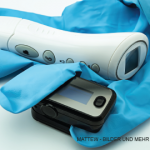“Despite having the same mutation, SM patients may not look like a typical patient with that mutation and may have different symptoms,” he says. “I suspect as we reassess patients with ‘negative genetic tests,’ we’ll realize that SM is much more important than we previously thought.”
Although these findings offer genetic diagnoses to patients with difficult to diagnose diseases, an ongoing impediment to the widespread use of tests for SM is their high cost, especially for NGS. Insurance companies and federal programs are often hesitant to pay for even simple genetic tests, let alone deep NGS sequencing in multiple tissues.
Together, these issues have critical implications for treatment. Patients with unusual presentations and different symptoms from what are typically seen may not be able to get insurance approval for certain medications.
For example, Dr. Hoffman noted that many autoinflammatory disease patients, with or without identified genetic mutations, respond favorably to anti-interleukin 1 therapy. Yet rheumatologists know that many rheumatoid arthritis patients don’t find therapeutic improvement with this class of FDA-approved drugs.
Perhaps those patients who do find success are those who have a somatic mosaic mutation in genes related to autoinflammatory diseases. This might make them more likely to be responsive to the therapy. Identifying these patients and evaluating their genes in different cells or tissues may bring us closer to practicing more personalized medicine.
“We are at a very interesting time right now where the gene sequencing technology is available, and the cost is coming down at an amazingly fast rate,” says Dr. Hoffman. “As we learn more, we may find a place for more widespread application for SM testing for patients who present with uncommon manifestations or late onset disease.”
Kurt Ullman has been a freelance writer for more than 30 years and a contributing writer to The Rheumatologist for 10 years.
Reference
- Kawaski Y, Oda H, Ito J, et al. Pluripotent cell-based phenotypic dissection identifies a high-frequency somatic NLRC4 mutation as a cause of autoinflammation. Arthritis Rheumatol. 2017;69:447–459.

